Northeastern co-op student learns the ‘fascinating’ ways of urban beekeeping
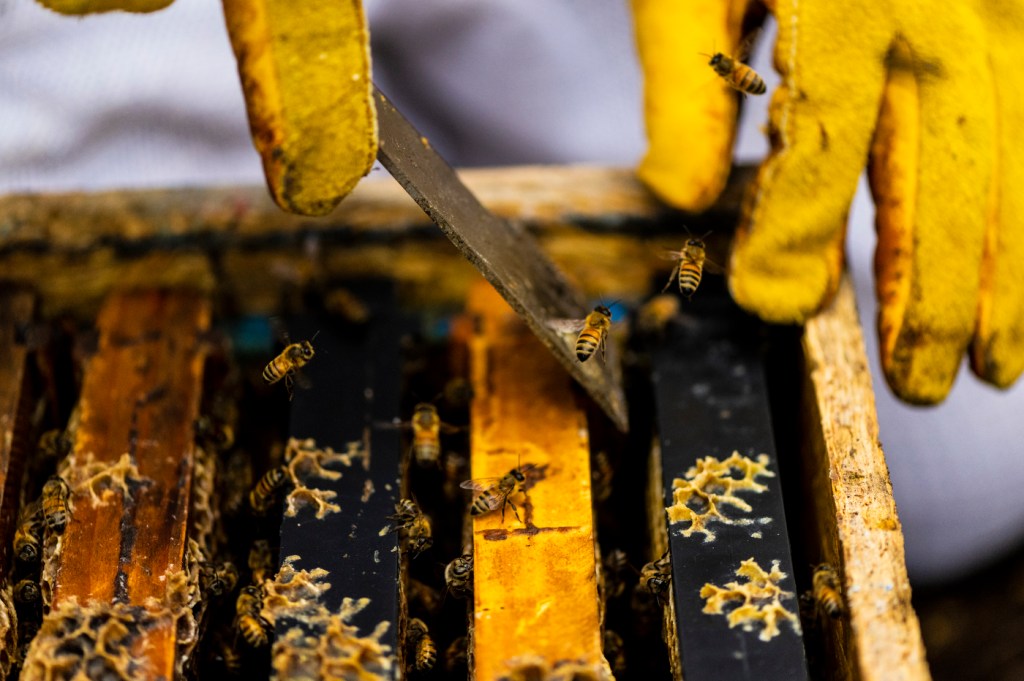
The words “urban” and “beekeeping” might not seem to go together, but Northeastern student Katherine Antos has found a co-op that makes it possible for city dwellers to keep bees on corporate rooftops and residential side yards.
Antos is spending the semester working at the Roxbury-based Best Bees Co., which offers hive installation and monthly beekeeping services to residential and commercial clients.
She spends part of her time in the field, shadowing beekeepers on their rounds, and part of her time in the office helping to analyze data about hive health and bee populations.
The work is a perfect fit given her major in environmental and sustainability sciences and her minor in data science, Antos says.
It also jives with her passion for sustainable agriculture, sparked by a job working on a farm in New Jersey when she was in high school.
“The co-op combines my major interests, and I get to learn so much more about bees that I never would have otherwise,” Antos says. “They’re fascinating.”
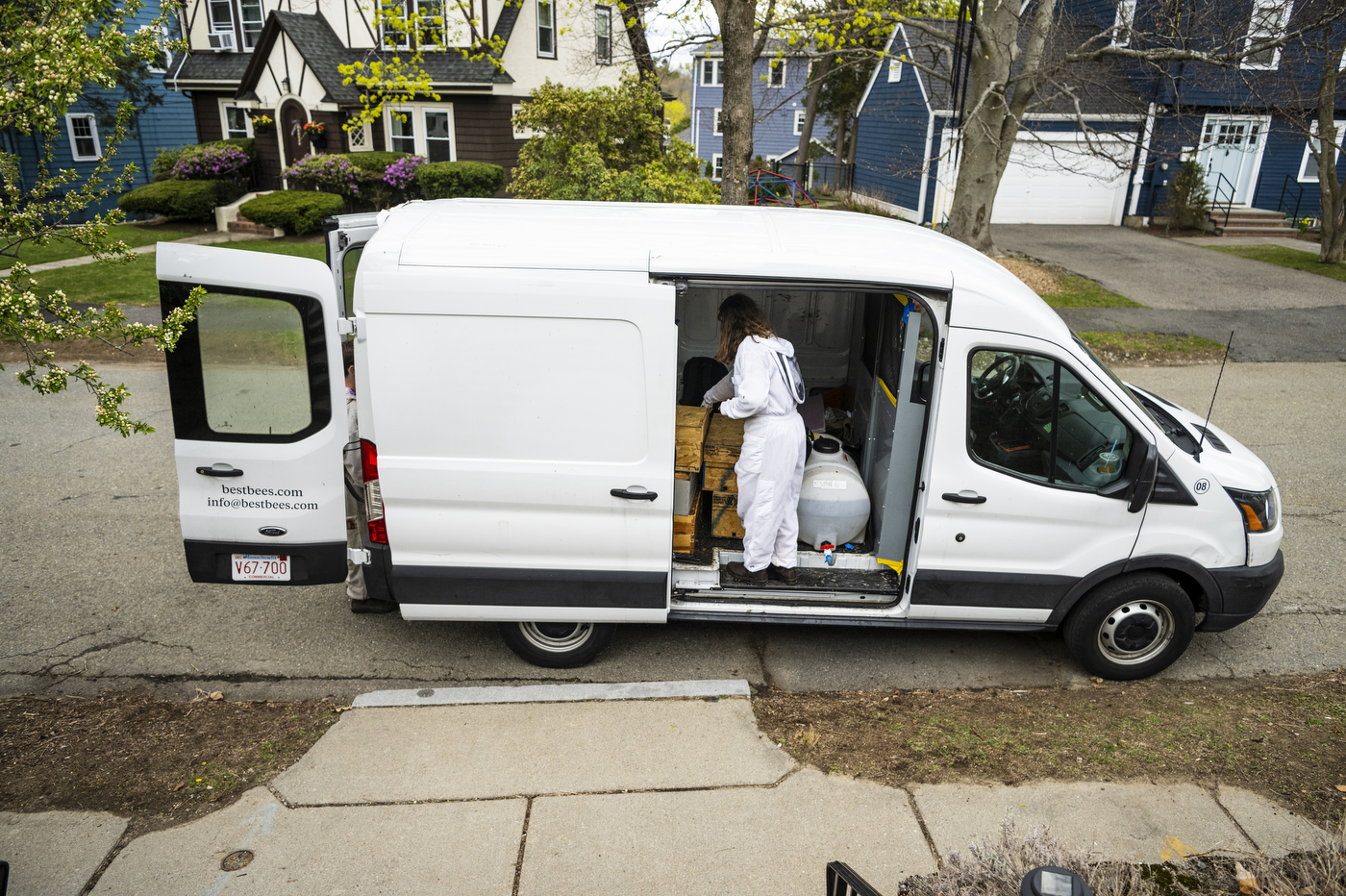
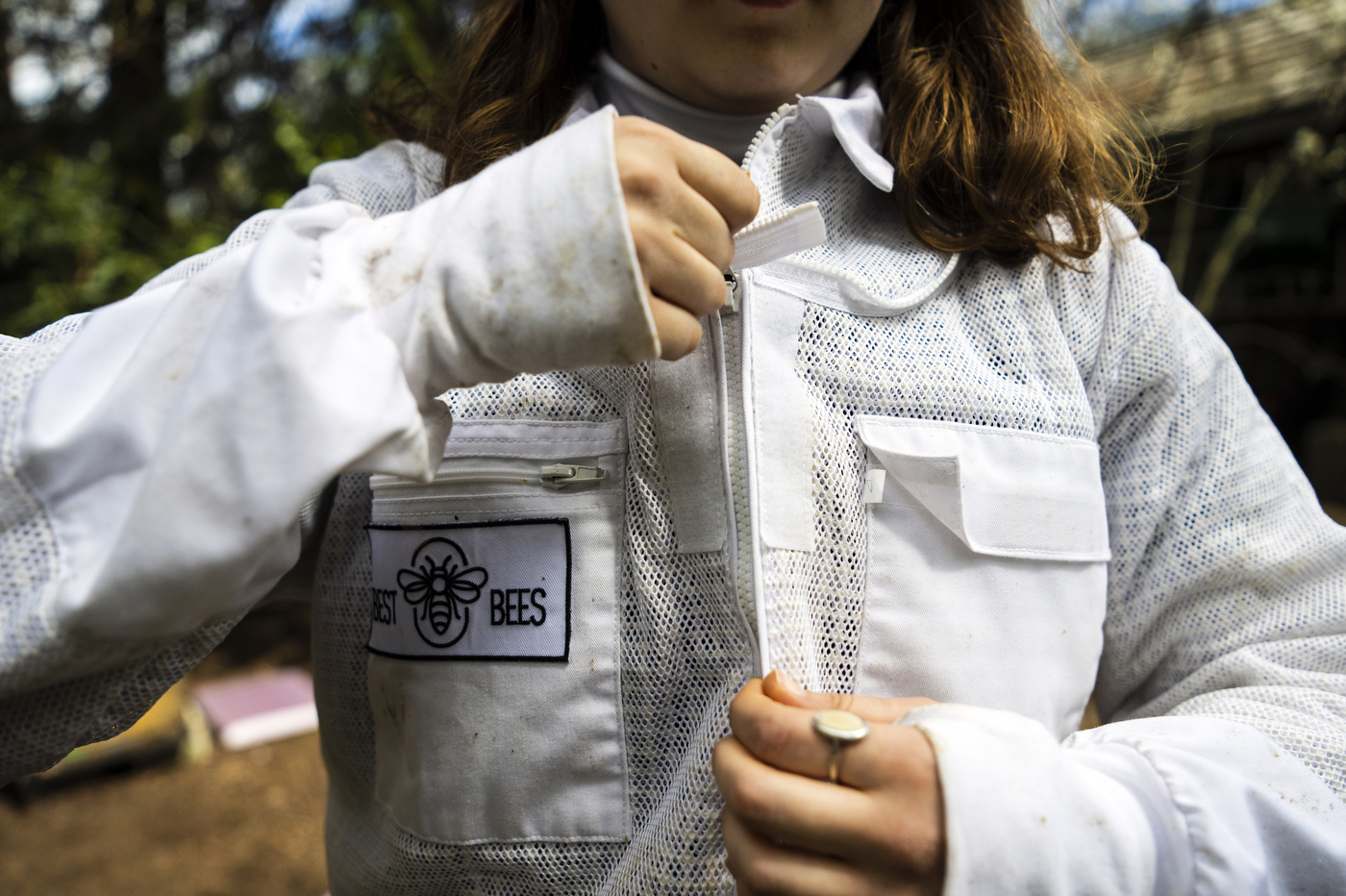
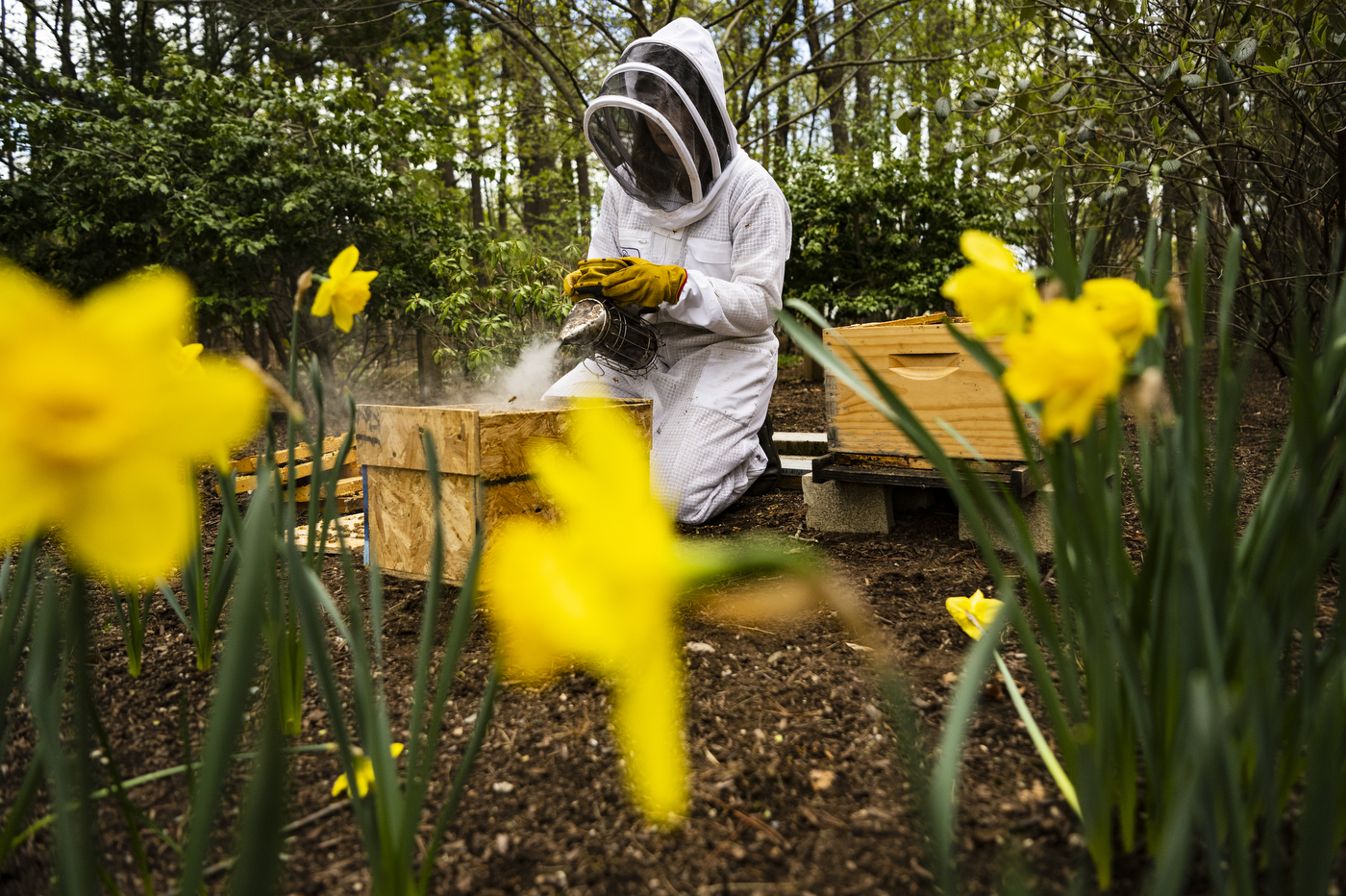
A female leader—and workers
Antos says she was surprised to learn that the bees who do all the work of building the honeycomb, feeding the young, collecting nectar and cleaning the hive—including clearing out dead bees—are all female.
The males are called drones and laze about, waiting for a chance to mate with the queen, however unlikely it is for most of them.
The females fly away to gather pollen, Antos says. “They are also the only ones that sting.”
Best Bees Co. supplied Antos with a beekeeper suit to wear while out in the field, but she’s been stung a couple of times.
“It was through my gloves. It didn’t really hurt,” she says.
The day of the stinging there was a lot of moisture in the air, which bees don’t like, Antos says. So they were a bit angry when the beekeeper opened the hive to feed them, she says.
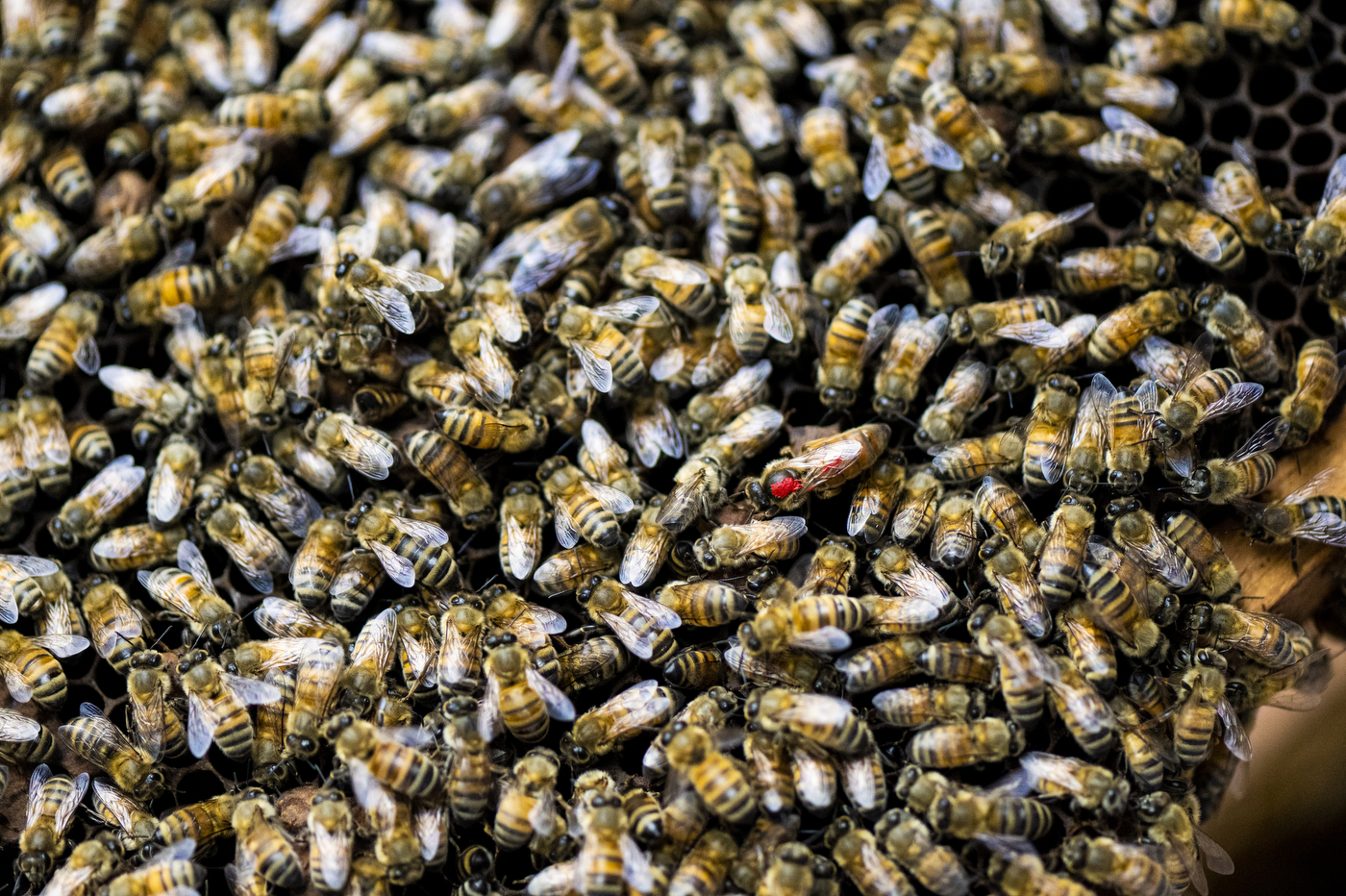
Bees in high places
The Best Bees Co. employs beekeepers who are expert in assessing the best location to install a hive, despite small yards and congestion.
Some of the most unexpected places where Antos has seen hives are the roofs of office towers in downtown Boston.
“They do really well, surprisingly,” Antos says. “Bees can travel really far to get the food they need. So even though there may be no flowers around, they will travel to find what they need.”
Best Bees, which also has offices across the country, advertises “turnkey” beehive installation and hive keeping for residential and commercial clients, including Four Seasons Hotels and Resorts and Beacon Capital Partners.
The company also offers swarm removal services to people whose buildings have become the site of unexpected and unsolicited bee activity.
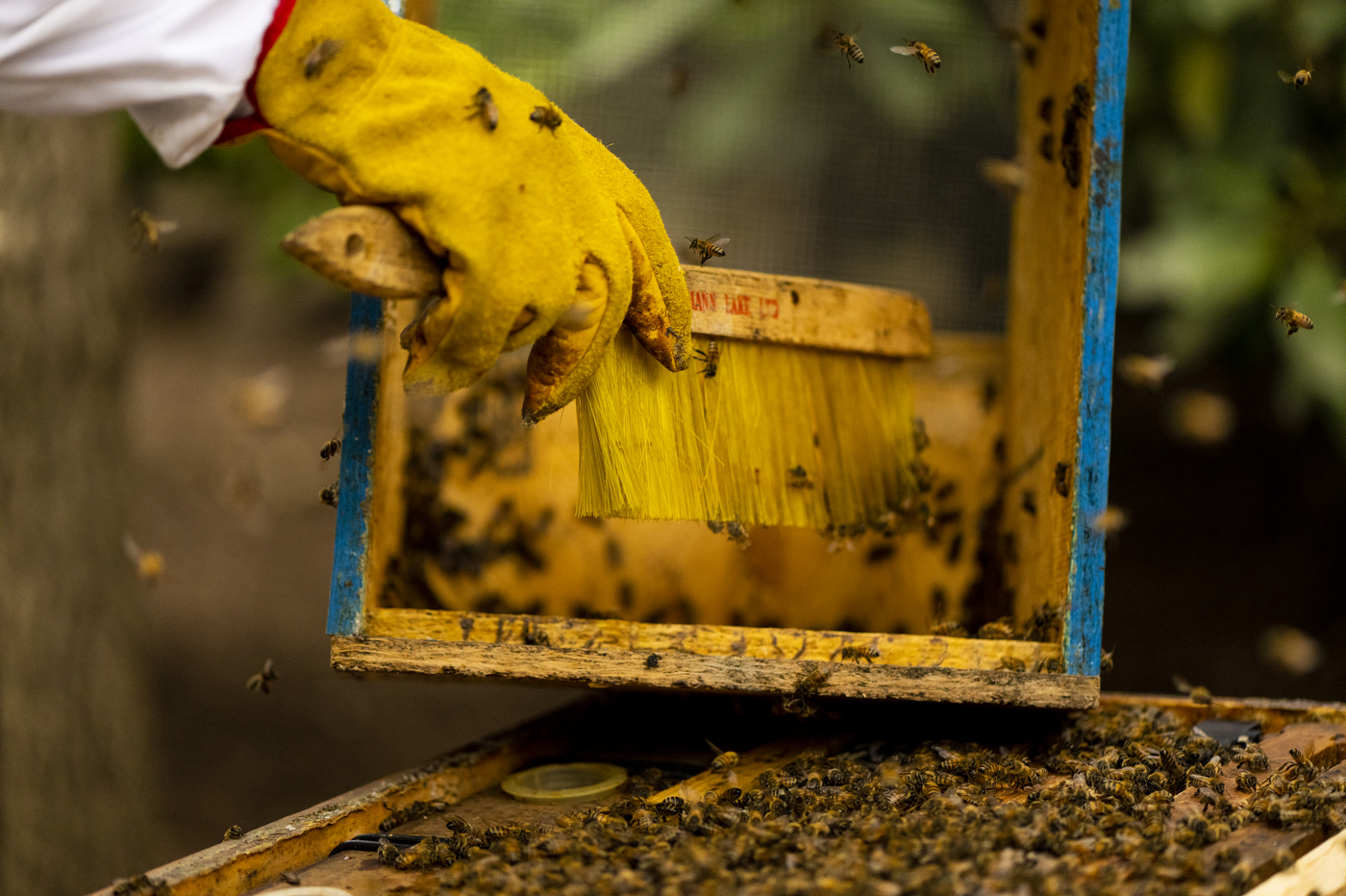
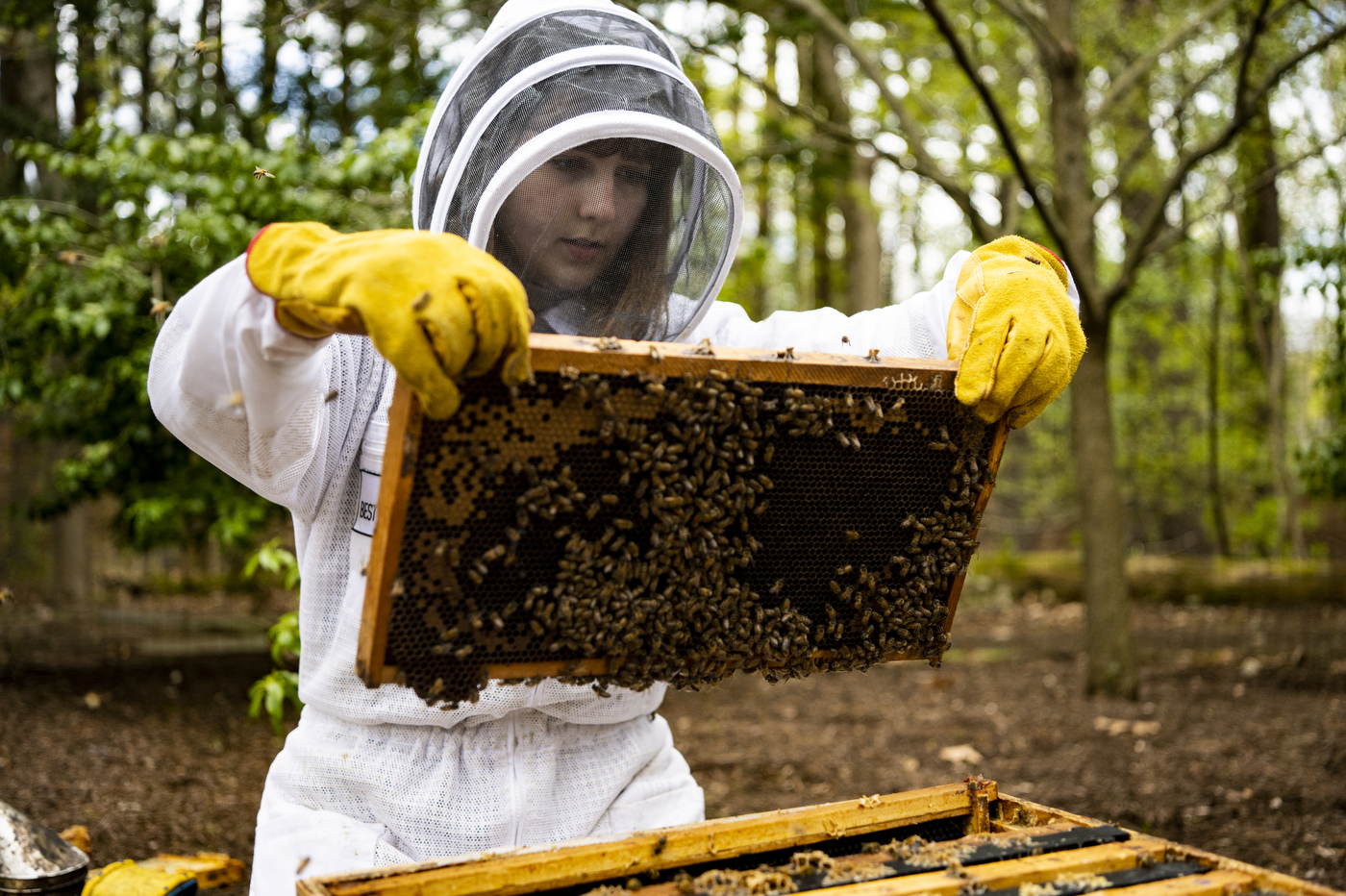
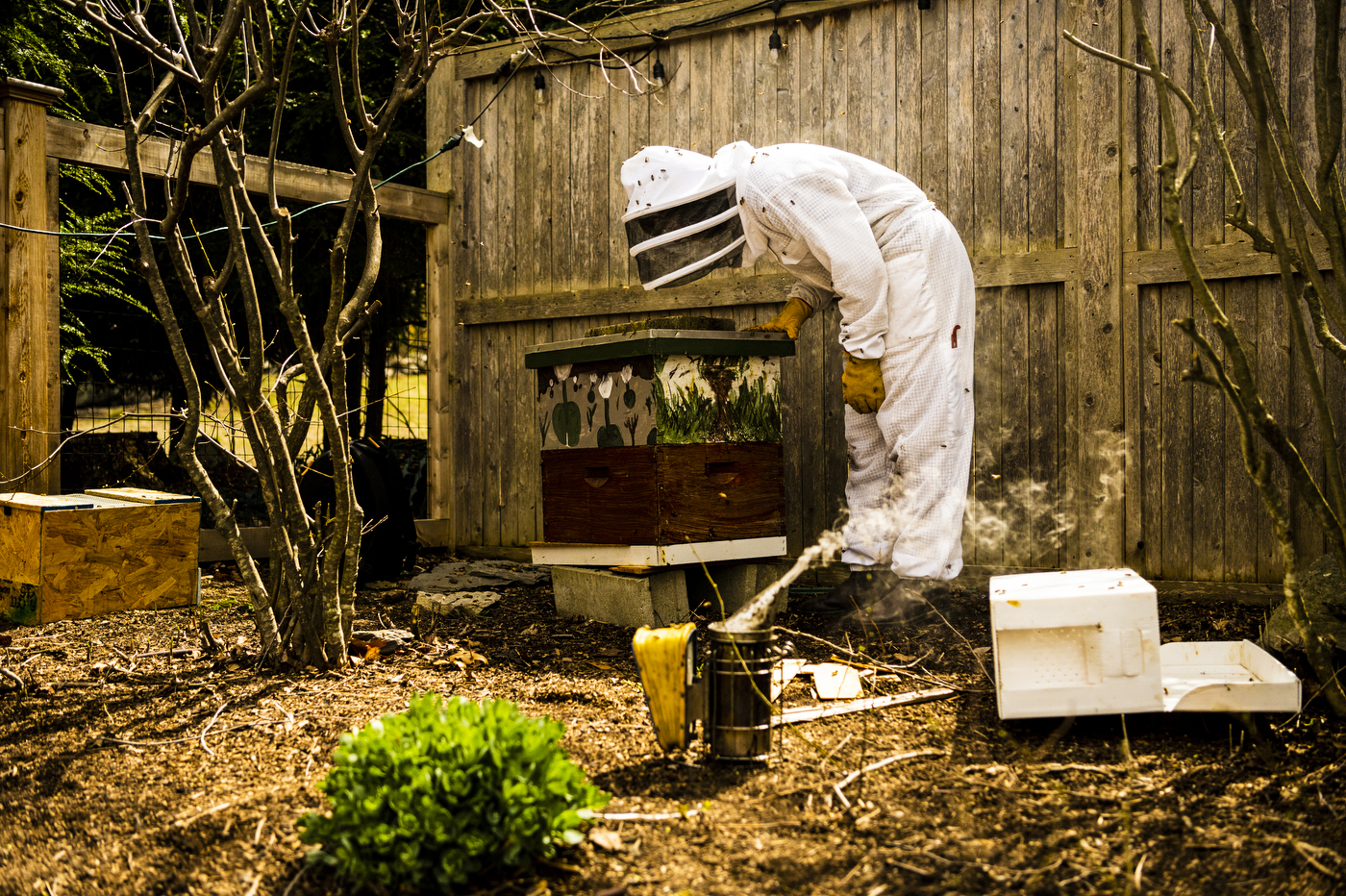
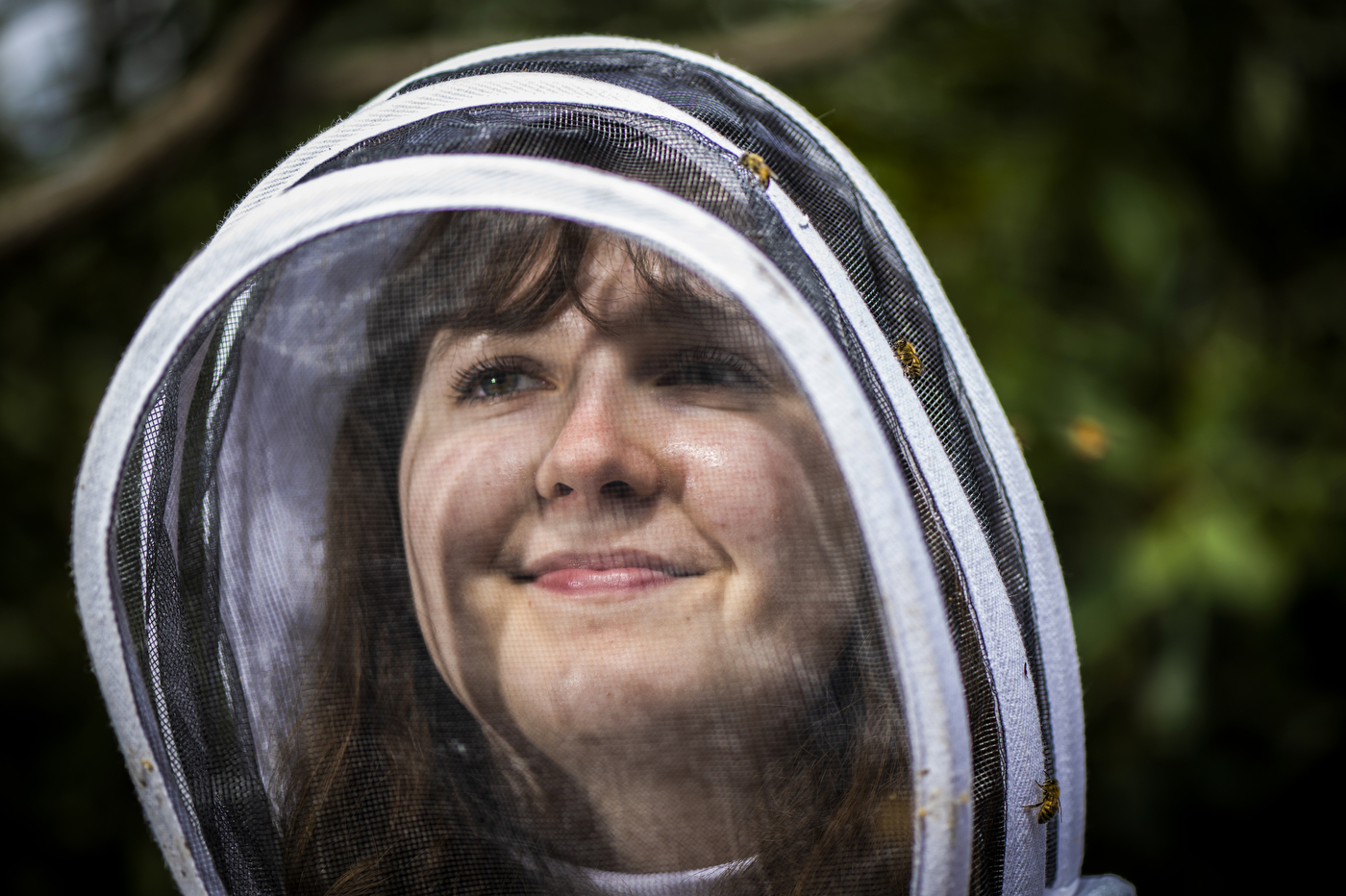
The spell of recent warm days has prompted bees to fly into action, Antos says.
“You can tell when they’re going out and foraging because you can see the pollen on their legs,” she says.
Antos, a 20-year-old third-year student whose previous co-op was with Green City Growers, says bee pollination is an essential part of the food web.
“Bees are amazing,” she says. “They’re like a super organism because one bee can’t function on its own—it has to function within the system and cooperate with everybody else.”
Cynthia McCormick Hibbert is a Northeastern Global News reporter. Email her at c.hibbert@northeastern.edu or contact her on Twitter @HibbertCynthia





